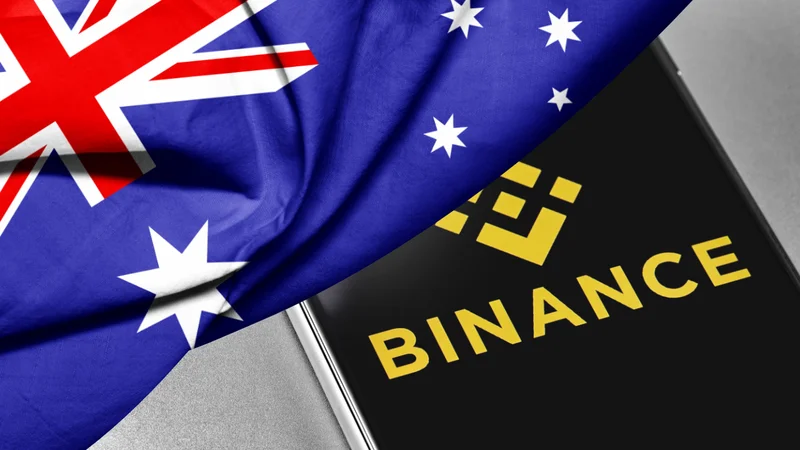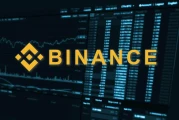DeFi's 'I Told You So' Moment: Why Last Friday's Crypto Crash Was a Glimpse...
2025-10-12 30 crypto exchange binance
When I read the news last week, I honestly just sat back in my chair, speechless. It wasn’t the political maneuvering or the cable news chatter that struck me. It was the sheer, tectonic significance of the moment. President Trump pardoning Changpeng Zhao, the founder of Binance, isn't just a headline. It's a declaration. It’s the sound of a starting gun for the next chapter of American innovation, and we are all standing right on the starting line.
For years, we’ve talked about cryptocurrency in terms of potential. We’ve debated its legitimacy, its utility, its future. We’ve watched it fight for a seat at the table, often against a backdrop of regulatory hostility and institutional skepticism. The prosecution of CZ in 2023 was, for many, the peak of that "war on crypto"—a message from the old guard that this new digital world was not welcome.
But the pardon on October 23rd? That changes everything. This is the kind of breakthrough that reminds me why I got into this field in the first place. It’s a signal, clear as day, that the debate is over. The technology won.
Let's be very clear about what this pardon represents. This isn't just about one man's legal slate being wiped clean. This is a policy pivot of historic proportions. When the White House press secretary declares that the Biden administration's "war on crypto is over," it's more than just rhetoric. It's a fundamental alignment of the nation's political engine with its technological one.
I see this as our generation's version of the Telecommunications Act of 1996. Before that, the internet was a fascinating, niche technology. After, with the floodgates of commercialization and competition opened, it became the bedrock of our modern world. That single act of deregulation unleashed trillions of dollars in value and reshaped society. What we're seeing now is the same kind of paradigm shift. By embracing a key figure from the world's largest crypto exchange, the administration is effectively rolling out the red carpet and saying, "Build here. Innovate here. Define the future from here."
CZ’s own statement, his pledge to help "make America the Capital of Crypto," feels like a direct response to that invitation. This isn't just about allowing Binance, arguably the `best crypto exchange` in terms of global volume, to potentially re-establish a U.S. base. It's about reversing the brain drain and capital flight that has plagued the American crypto industry for years. For too long, we’ve watched brilliant founders and groundbreaking projects leave for friendlier shores. Now, the tide is turning.

Of course, with this new power comes immense responsibility. How do we build this new financial infrastructure in a way that is equitable, secure, and transparent? This isn't a free-for-all; it's a call to build a better, more mature system on American soil.
And if you want proof that this isn't just political theater, you don't need to look at the polls. You need to look at the blockchain. The on-chain data is telling a story that is far more powerful than any press conference.
In the days following the pardon, analysts noticed something incredible happening. Bitcoin Reserves On Binance Fall To July Lows — What This Means For Price. An analyst, Amr Taha, called the decline "extremely aggressive." Now, to the uninitiated, that might sound like bad news. It's the exact opposite. This is what we call a drop in exchange reserves—in simpler terms, it means people are pulling their Bitcoin off exchanges and into their own private, long-term storage.
This is the ultimate vote of confidence. It's like a bank run, but in reverse. Instead of rushing to withdraw cash in a panic, people are rushing to secure their digital assets for the long haul. They aren't planning to sell. They're planning to hold. They see the pardon not as a short-term price pump, but as the fundamental de-risking of the entire asset class—the speed of this collective realization is just staggering, it means the gap between crypto being a speculative gamble and a strategic long-term investment is closing faster than we can even comprehend.
This mass migration of assets from exchanges creates the conditions for a "supply shock." That’s a technical term for a very simple concept: when there's less of something available to buy, and more people want it, the price has nowhere to go but up. All the institutional demand from ETFs, all the new retail interest from people deciding to `buy bitcoin binance` or `buy xrp binance.com` for the first time—it's all competing for a rapidly shrinking pool of available coins. What does that tell you about where we might be headed in 2026?
Let’s step back. For a decade, a question has lingered over crypto: will it be crushed by governments, or embraced? That question was just answered. The pardon of Changpeng Zhao wasn't just a political act; it was a cultural and economic capitulation. It was the moment the old world acknowledged that the new one is here to stay. We are no longer asking if this technology will be integrated into the fabric of our society. We are now only asking how and how fast. The code has been written, the political will is now aligned, and the market is responding. We have crossed the Rubicon. There is no going back.
Tags: crypto exchange binance
Related Articles

DeFi's 'I Told You So' Moment: Why Last Friday's Crypto Crash Was a Glimpse...
2025-10-12 30 crypto exchange binance